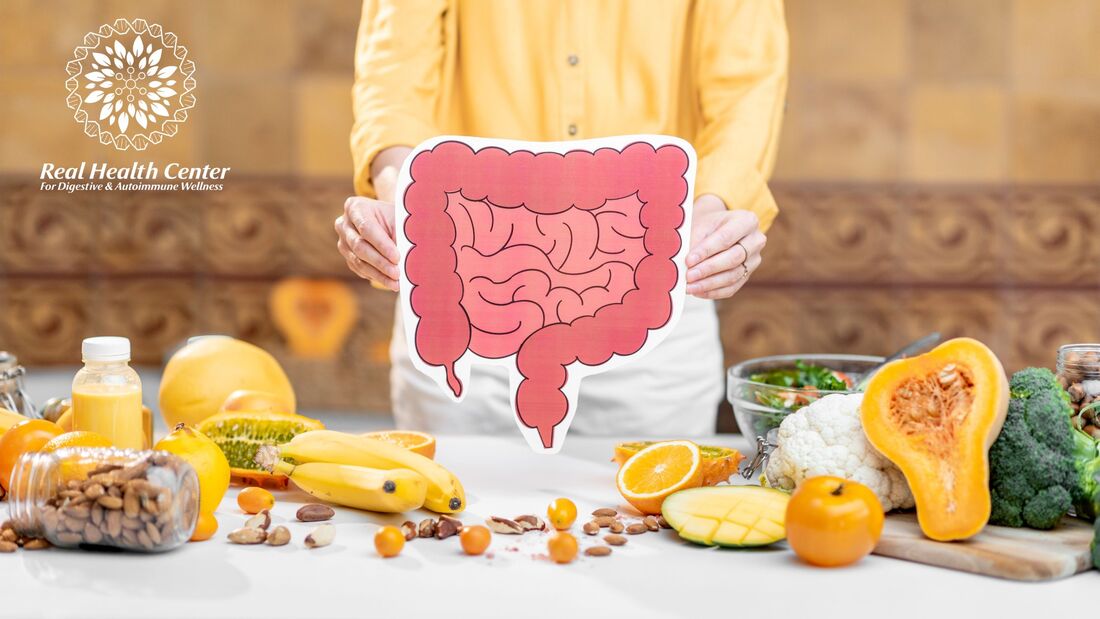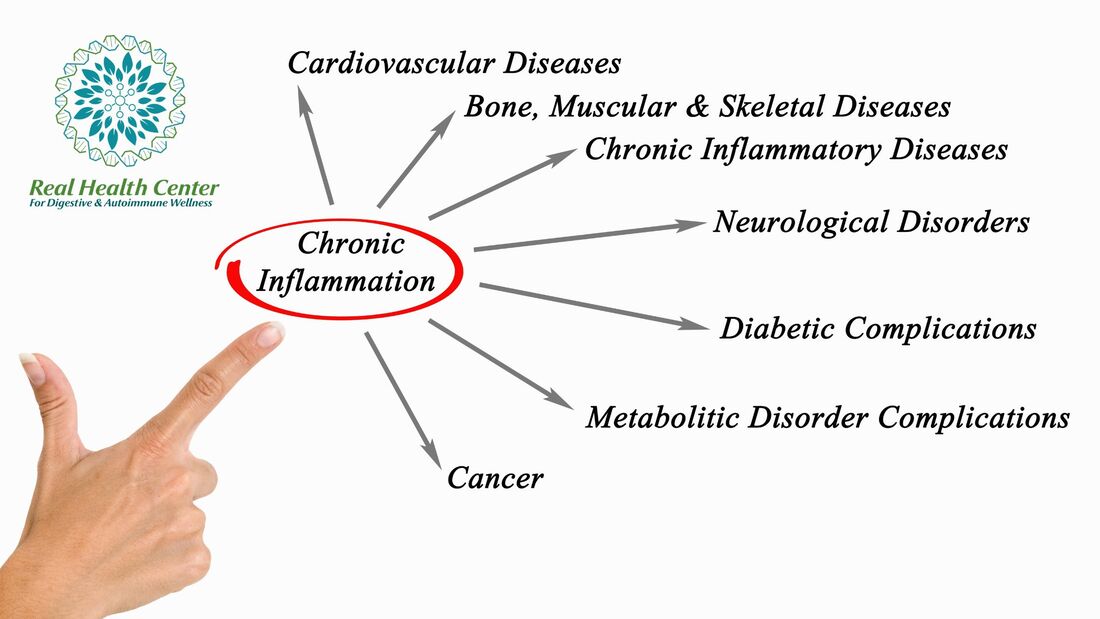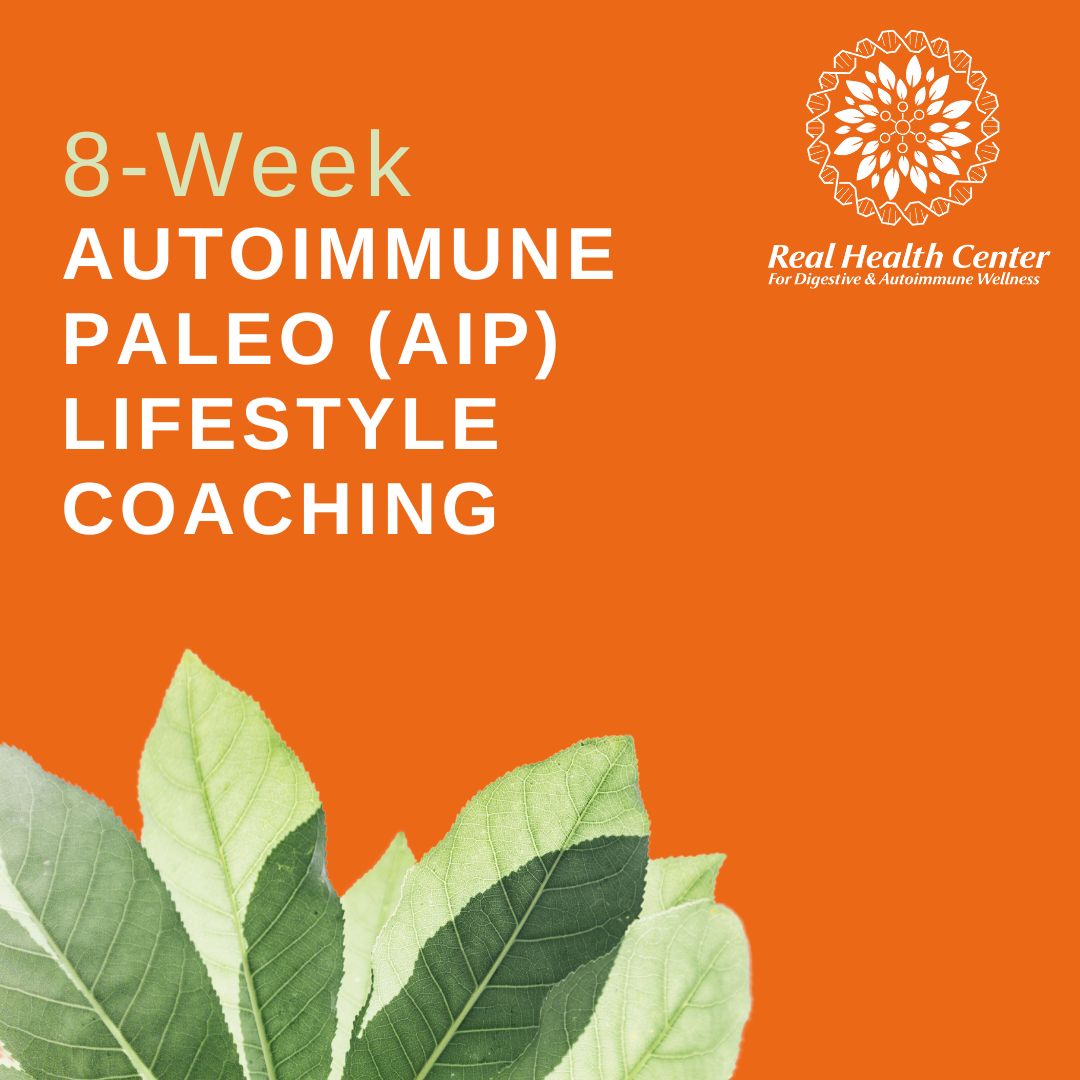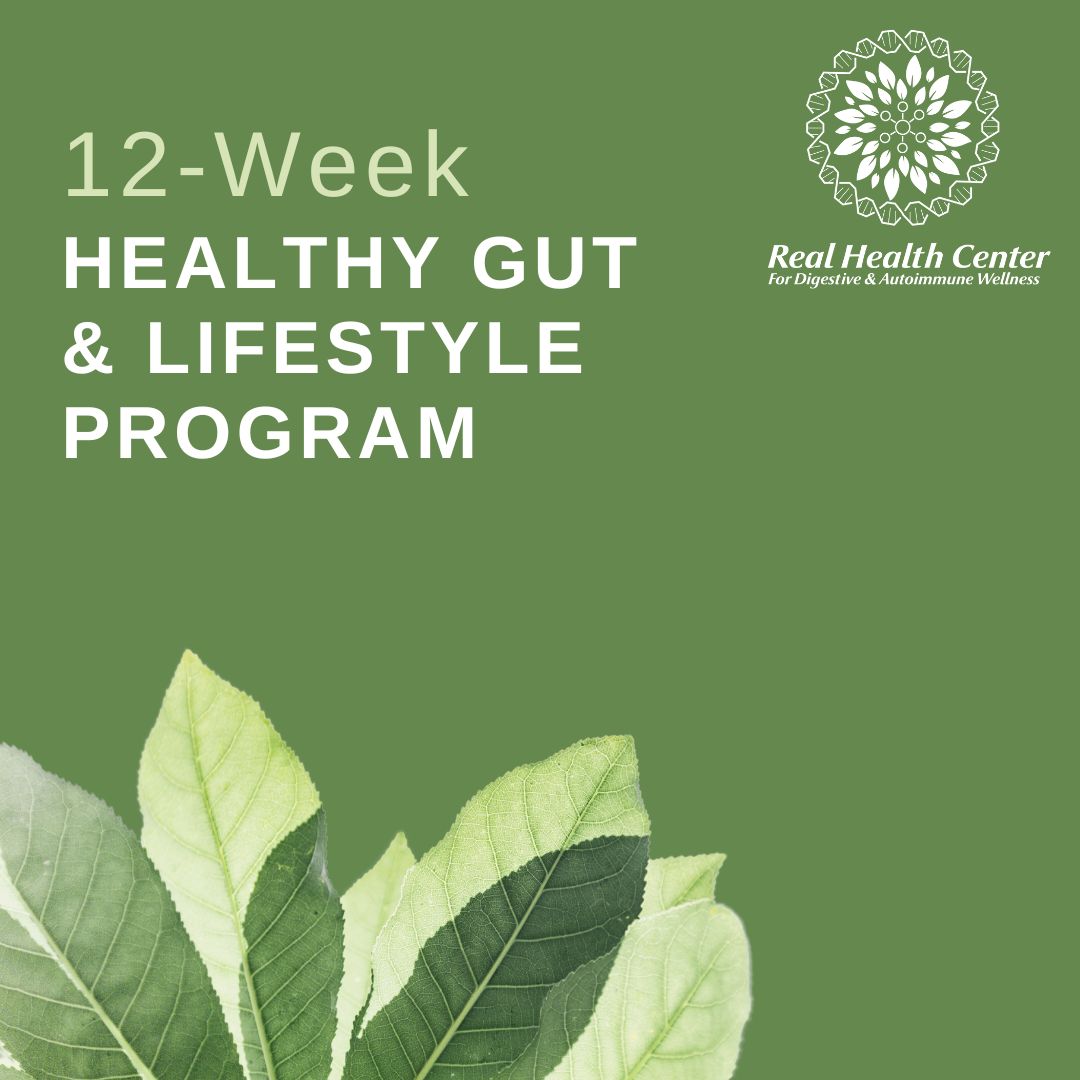The Gut-Body Symphony: Navigating the Intricate Connection Between Your Gut and Overall Health8/31/2023 Greetings to all those seeking a deeper understanding of holistic well-being! Today, we embark on an exploration of the wondrous and intricate connection that exists between your gut and the entire symphony of your body's functions. As a Certified Functional Medicine Practitioner and Functional Nutrition Counsellor, I am excited to guide you through the captivating realm of the gut-body connection.
A Microbial Tapestry: The Gut Microbiome Picture your gut as a thriving ecosystem bustling with life—a tapestry woven from trillions of microorganisms collectively known as the gut microbiome. This vibrant community of bacteria, yeasts, and other microbes plays a pivotal role in not only your digestive health but also your overall vitality. Beyond Digestion: A Multifaceted Influence While the gut's primary role is digesting and absorbing nutrients from the foods you consume, its influence extends far beyond the confines of the digestive process. The gut microbiome holds the key to several aspects of your well-being: 1. Immune Function: A significant portion of your immune system resides in the gut. The gut microbiome and immune system communicate in a dynamic dance, shaping the body's immune responses. A harmonious gut microbiome contributes to a robust immune defense against pathogens and harmful invaders. 2. Hormonal Balance: Surprisingly, your gut microbiome can influence hormonal balance. Microbes participate in metabolizing hormones like estrogen, impacting their levels and potentially influencing menstrual cycles, mood, and hormonal health. 3. Brain-Gut Axis: The gut-brain connection is a fascinating bridge between your gut and your central nervous system. This bidirectional communication influences mood, cognition, and mental well-being. The gut microbiome produces neurotransmitters and communicates with the brain through neural and hormonal pathways. 4. Nutrient Synthesis: Certain gut bacteria play a role in synthesizing vitamins and other nutrients, contributing to your overall nutrient status. 5. Metabolic Health: The gut microbiome can impact your metabolism, affecting how your body processes and stores energy. Imbalances in the microbiome have been linked to metabolic disorders like obesity and type 2 diabetes. 6. Inflammation Regulation: A harmonious gut microbiome can help regulate inflammation—a vital response that, when dysregulated, can lead to chronic health conditions. Nurturing the Gut-Body Harmony As you navigate the landscape of holistic health, nurturing the gut-body connection emerges as a cornerstone. Here's how you can promote a thriving gut microbiome and unlock its multifaceted benefits: 1. Fiber-Rich Diet: Embrace a diet rich in fiber from whole grains, fruits, vegetables, and legumes. Fiber nourishes beneficial gut bacteria and supports their growth. 2. Diverse Foods: Encourage microbial diversity by consuming a variety of plant-based foods. Each type of fiber feeds different groups of bacteria. 3. Probiotic Foods: Incorporate fermented foods like yogurt, kefir, sauerkraut, and kimchi to introduce beneficial bacteria into your gut. 4. Prebiotic Foods: Consume prebiotic-rich foods like garlic, onions, and bananas. These foods provide nourishment for your existing gut bacteria. 5. Hydration and Mindful Eating: Stay hydrated and practice mindful eating to support optimal digestion and nutrient absorption. 6. Stress Management: Chronic stress can impact the gut microbiome. Engage in stress-reducing activities such as meditation, yoga, and spending time in nature. 7. Professional Guidance: Collaborate with functional medicine practitioners to tailor a holistic plan that nurtures your gut and aligns with your unique health profile. In conclusion, the gut-body connection is a captivating journey of discovery that underscores the interplay between your gut microbiome and your overall well-being. By nurturing your gut, you're nurturing every facet of your health. As you navigate this path, know that I'm here to provide guidance, insights, and evidence-based strategies to help you unlock the potential of your gut for vibrant living. Your initial consultation is free and you can request it by clicking the button below:
0 Comments
Gastritis, a condition that involves inflammation of the stomach lining, can bring discomfort and challenges to daily life. Understanding its intricacies and adopting a holistic approach to treatment can pave the way for effective relief and lasting healing. In this article, we'll explore the various facets of gastritis and delve into a robust holistic treatment plan that encompasses dietary adjustments, lifestyle modifications, natural remedies, and long-term strategies.
Unraveling the Complexity of Gastritis Gastritis isn't a one-size-fits-all condition; it presents itself in different forms, including acute, chronic, erosive, and non-erosive. To effectively address it, it's essential to comprehend its underlying causes and triggers. Various factors contribute to gastritis, including H. pylori infection, stress, certain medications, alcohol consumption, smoking, and dietary choices. This multifaceted nature underscores the need for a comprehensive treatment approach. Empowering Your Diet for Healing A cornerstone of gastritis management lies in dietary adjustments. The adoption of an anti-inflammatory diet can work wonders in reducing stomach inflammation and alleviating symptoms. Prioritizing whole, unprocessed foods and steering clear of triggers such as spicy, acidic, and fatty foods is paramount. Incorporating herbs and spices known for their anti-inflammatory properties can further enhance the healing potential of your diet. Nurturing Gut Health Through Foods and Supplements Promoting gut healing is a central objective in the management of gastritis. Certain foods and supplements can aid in this process. Probiotics and prebiotics play a crucial role in maintaining a balanced gut microbiome, while nutrient-rich options like bone broth, aloe vera, and specific vitamins and minerals offer support to the stomach lining and facilitate digestion. Harnessing the power of these nutritional elements contributes to a holistic approach. Harmonizing Lifestyle for Balance Stress management holds a key position in alleviating gastritis symptoms. Techniques such as mindfulness, meditation, and relaxation exercises can effectively reduce stress and create a sense of equilibrium. Additionally, paying attention to sleep, hydration, and exercise contributes to overall gut health. Embracing these lifestyle modifications can foster a comprehensive approach to gastritis relief. Exploring Nature's Remedies Natural remedies have long been valued for their potential to alleviate discomfort and promote healing. Ginger, turmeric, chamomile, and licorice root are among the natural allies that can help reduce inflammation, soothe stomach distress, and provide relief from symptoms. Integrating these remedies into your routine can offer a complementary layer of support. Soothing with Herbal Teas and Infusions Incorporating herbal teas and infusions into your routine can provide gentle comfort for gastritis symptoms. Crafted to deliver a soothing effect on the stomach and digestive system, these warm concoctions offer both physical relief and a sense of well-being during the healing journey. Balancing Medical Interventions and Holistic Approaches While holistic strategies are pivotal, acknowledging the potential need for medical interventions is also important. Collaborating with healthcare providers to explore options such as medications and medical procedures can offer relief when necessary, aligning with a comprehensive approach to care. Embracing Long-Term Healing Gastritis demands commitment for lasting relief. Transitioning from acute symptom management to a phase of maintenance and prevention is essential for ongoing well-being. By maintaining dietary adjustments, lifestyle modifications, and a holistic perspective, individuals can chart a course towards long-term healing and optimal gut health. In conclusion, gastritis is a multifaceted condition that requires a holistic approach for effective relief and healing. By understanding its nuances and adopting a comprehensive plan that encompasses diet, lifestyle, natural remedies, and potential medical interventions, individuals can embark on a journey towards lasting well-being. Customizing your approach and making informed decisions will be key as you navigate the path to relief and healing. Your initial consultation is free and you can request it by clicking the button below: Greetings to all seekers of holistic health! Today, we embark on a journey into the realm of your gut, where an intricate dance between bacteria and inflammation unfolds. As a Certified Functional Medicine Practitioner and Functional Nutrition Counsellor, I am excited to explore the profound connection between bacterial overgrowth, inflammation, and its wide-ranging impact on your body.
The Hidden Player: Bacterial Overgrowth In the intricate landscape of your gut, bacterial overgrowth can cast a shadow over the delicate balance of your microbiome. This overgrowth can trigger a cascade of events, including inflammation, that extends beyond the confines of your digestive system. Inflammation: The Double-Edged Sword Inflammation is your body's natural response to harmful stimuli, such as infections or injuries. However, when inflammation becomes chronic and systemic—persisting even when there is no real threat—it can wreak havoc on your health. Bacterial overgrowth in the small intestine can fuel this chronic inflammation, initiating a cycle that affects your entire body. The Gut Inflammation Connection Bacterial overgrowth triggers inflammation in the gut through various mechanisms. For instance, as bacteria ferment undigested food particles, they produce metabolic byproducts that can irritate and damage the gut lining. This irritation prompts an immune response, leading to inflammation in the gut tissues. Systemic Impact of Inflammation Here's where the story takes an intriguing turn. Inflammation that starts in the gut doesn't necessarily stay there. It has the potential to travel throughout your body via the bloodstream. This phenomenon, known as "systemic inflammation," is a key player in the development of various health conditions. The Domino Effect on Health Conditions Cardiovascular Disease: Chronic inflammation can damage blood vessels and contribute to the formation of arterial plaques, increasing the risk of heart disease, stroke, and other cardiovascular issues. Autoimmune Disorders: Systemic inflammation can trigger or exacerbate autoimmune conditions, where the immune system mistakenly attacks healthy tissues. Disorders like rheumatoid arthritis, lupus, and inflammatory bowel disease have strong ties to inflammation. Metabolic Syndrome: Inflammation can disrupt insulin sensitivity and contribute to metabolic syndrome—a cluster of conditions including obesity, high blood pressure, and insulin resistance. Neurological Impact: Emerging research suggests a link between chronic inflammation and neurological conditions like Alzheimer's disease and Parkinson's disease. Cancer Risk: Chronic inflammation can create an environment conducive to cancer development, promoting cellular changes and genetic mutations. Empowering Your Health Journey Understanding the link between bacterial overgrowth, gut inflammation, and systemic health enables you to take proactive steps towards well-being: Gut-Nourishing Foods: Opt for an anti-inflammatory diet rich in whole foods, leafy greens, fatty fish, nuts, and antioxidant-rich fruits. Healthy Fats: Incorporate omega-3 fatty acids found in flaxseeds, chia seeds, and fatty fish. These fats have anti-inflammatory properties. Probiotics and Prebiotics: Promote a balanced gut microbiome by consuming probiotic-rich foods (yogurt, kefir) and prebiotic foods (garlic, onions, bananas) that fuel beneficial bacteria. Stress Management: Chronic stress can fuel inflammation. Prioritize relaxation techniques like meditation, yoga, and deep breathing. Professional Guidance: Collaborate with professionals who specialize in functional medicine to create a personalized plan that addresses inflammation and its effects. Remember, the journey to vibrant health is a collaborative effort. By addressing bacterial overgrowth and inflammation, you're taking a significant step towards a balanced and harmonious well-being. Your initial consultation is free and you can request it by clicking the button below: Welcome to a new dimension of wellness where the intricate dance between your gut health and nutrient absorption takes center stage. As a Certified Functional Medicine Practitioner and Functional Nutrition Counsellor, I'm excited to share how disruptions in your gut health, particularly bacterial overgrowth, can lead to a chain reaction affecting your nutrient absorption and, subsequently, your overall health.
The Silent Culprit: Bacterial Overgrowth Picture your small intestine as a gatekeeper responsible for allowing essential nutrients to enter your bloodstream. Bacterial overgrowth, however, can disrupt this delicate process. When the population of gut bacteria becomes imbalanced, it can interfere with the absorptive surface of the small intestine, hindering its ability to extract nutrients from the food you consume. The Nutrient Deficiency Domino Effect When your small intestine struggles to absorb nutrients properly, it sets off a chain of events that reverberates throughout your body. Nutrient deficiencies can impact various bodily functions, giving rise to a myriad of health concerns: Anemia: Insufficient absorption of iron, vitamin B12, and folic acid can lead to anemia, a condition characterized by reduced red blood cell production and oxygen transport. Anemia can result in fatigue, weakness, and impaired cognitive function. Bone Health: Calcium and vitamin D absorption are crucial for maintaining strong and healthy bones. Bacterial overgrowth-related nutrient deficiencies could contribute to weakened bones, potentially increasing the risk of fractures and osteoporosis. Immune System Weakness: Micronutrients like zinc, selenium, and vitamins A and C are essential for a robust immune system. Deficiencies in these nutrients can compromise your body's defense mechanisms, leaving you more susceptible to infections. Neurological Implications: Nutrients such as vitamin B6, B12, and folate play pivotal roles in nerve function and neurotransmitter synthesis. Inadequate absorption can lead to neurological symptoms like numbness, tingling, and cognitive disturbances. Skin Health: Nutrient deficiencies can manifest on your skin, causing issues like dryness, flakiness, and reduced wound healing. The Path to Restoration Understanding the connection between bacterial overgrowth, nutrient absorption, and overall health underscores the importance of nurturing your gut. Here's how you can embark on a journey to restore nutrient harmony: Balanced Diet: Prioritize nutrient-dense foods rich in vitamins, minerals, and antioxidants. Incorporate a variety of fruits, vegetables, lean proteins, and whole grains. Gut-Friendly Foods: Integrate foods that promote gut health, such as fermented foods (yogurt, kefir, sauerkraut) and high-fiber options (beans, legumes, whole grains). Digestive Enzymes: In some cases, digestive enzyme supplements can aid nutrient absorption by breaking down food components more effectively. Professional Guidance: Collaborate with a natural health professional who understands functional medicine and can guide you through tailored dietary and supplement recommendations. Mindful Eating: Practice mindful eating habits to support digestion. Chew your food thoroughly, eat in a relaxed environment, and avoid rushing through meals. By nurturing your gut health, you're not only optimizing nutrient absorption but also laying a foundation for overall well-being. Remember, each individual's gut health is unique, and personalized guidance is key to achieving your health goals. As you embark on this journey, know that I'm here to provide support, guidance, and evidence-based insights. Let's unlock the potential of your gut for optimal health together. Your initial consultation is free and you can request it by clicking the button below: |
AuthorAyesha Syed, AFMC is a Certified Functional Medicine Practitioner and a Certified Functional Nutrition Counsellor. At the Real Health Center, she helps you manage Autoimmune Health and Digestive/GI Health applying functional medicine principles and testing if needed, nutritional counseling, lifestyle, and complementary therapies designed to support your overall health and balance. Archives
July 2024
Categories
All
|






 RSS Feed
RSS Feed

